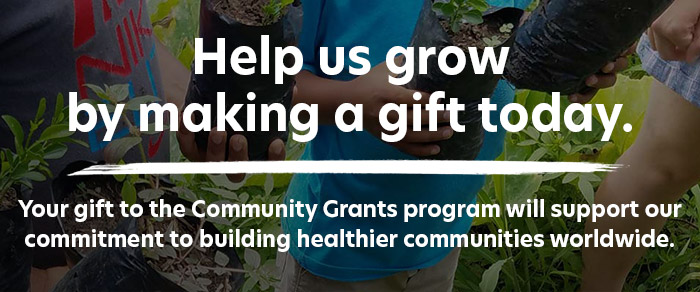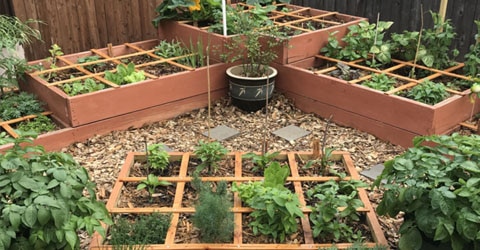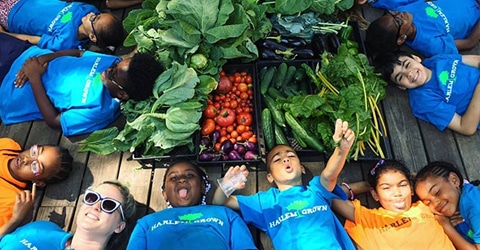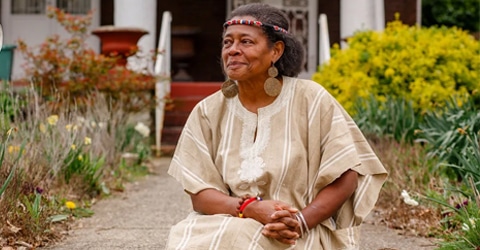
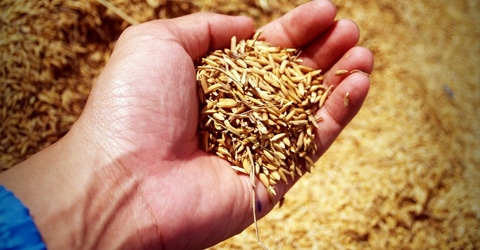
The following is an article from the Community Grants, “Food Is Political” series.
Farmers were the original doctors. They were the experts on land and soil, while providing nourishing food for communities like yours and mine. But similar to modern doctors, farmers have been stripped of their original connections with the people they serve to appease a global, profit-driven market that treats symptoms not causes. As Raj Patel, PhD, author of Stuffed and Starved and professor at the University of Texas, puts it, farmers have become, “people who understand a suite of chemicals and understand what it is they need to apply at a particular time.”[1] Farmers, once skilled agroecologists knowledgeable on all aspects of food production and resource renewal, have become chemists who prescribe pesticides to sustain unnatural farming practices. Ultimately, they’ve become contractors, rather than owners of their products.
Most of our food today is grown from suicide seeds that don’t reproduce seeds to regrow the next year[2]. These seeds are patented by corporations like Monsanto, making farmers dependent on purchasing seeds annually[2]. The ripple effects of this dysfunctional system are global. Farmers around the world are effectively indentured to these corporations, and often end up taking their own lives because of impossible debt[2], while more and more dollars leave local economies into the pockets of billionaires[3]. Most critically, we are losing traditional, sustainable connections to our land and the ways we used to grow food, a disconnect that will only grow worse. To me, these issues seemed near impossible to address on an individual level. But like many existential crises, sometimes the solutions lie within the most basic practices that we can all act on.
“We can sow seeds every day. Some will bloom tomorrow, some in 100 years.” – Howard Allen
I met Howard Allen at the Carrboro Farmers’ Market after I moved back to North Carolina to pursue my master’s degree in Public Health. Born on a homestead in Jamaica where he and his family grew their own food, Howard grew up deeply connected to food, animals, and soil. After years as a chef in New York City, where gardens were scarce, he felt a calling from the land to return to farming and his roots. Today, he is the owner of Faithfull Farms, a no-till, organic-methods farm in Orange County, North Carolina. When we started talking about the plights of our current food system and how hopeless I felt, he said something that will stick with me forever: “We can sow seeds every day. Some will bloom tomorrow, some in 100 years.” That is exactly what he does every day at his farm: he sows seeds for the future.
Sowing Seeds for the Local Economy
Howard sees his farm as a tool to educate and build community around local food. But his mission goes deeper than just food. He also hosts cooking classes with local chefs, organizes educational workshops for young Black men, and donates surplus produce to local organizations. Howard sees his land as a, “tangible source” of connections where, “people take away experiences that are oftentimes life changing” between soil, food, and the people who produce it. Those experiences inform how people reinvest back into the local community when they shop at the farmers’ market, dine at local restaurants, and build relationships with small producers. “These are the decisions we make on a day-to-day basis for our whole lives. So, they are very powerful.”
Sowing Seeds for the Land and Soil
Industrial farms practice plow-based agriculture: they uproot plants from the soil and replant new seeds each year[4]. But, because many essential nutrients from plant roots and the microbes are stripped from the ground, artificial fertilizers must be added to grow future crops[5]. Faithfull Farm practices no-till agriculture, meaning roots and microbes remain in the soil each winter and decompose, providing richer, more nutritious soil for the following planting season[4]. Howard sees his job as a steward of the land, where he asks, “How do we coexist with the soil in a way that minimizes disturbance, while increasing the health overall of the soil? We try to learn from nature and observations to try and get better at working with the system according to natural principles.”
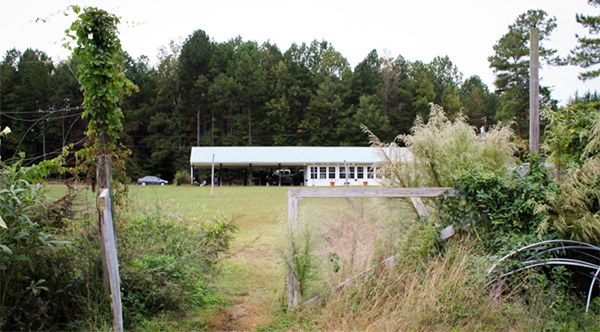
Sowing Seeds for the Next Generation of Farmers
Howard recognizes the importance of empowering the people lost in agricultural spaces and what it means for their freedom. Of farm owners in the US, less than 4% are people of color, yet they make up 62% of farm laborers[6]. Yet, American agriculture and economy was built from the knowledge and labor of African slaves[7][8] Howard notes that Black Americans have been, “segregated through poverty” and asks, “how do we reverse that?” Teaching young Black men how to grow their own food is one way. Empowering them with this fundamental knowledge and these skills is a way of investing in their future and their freedom.
Howard’s wisdom is evident through his actions and words, and the rippling impacts he has had on his community. I think we all want a little piece of that, and he says there’s a place for all of us to be changemakers. But it starts by asking questions: “If you control the food, you control the people… you can protest, do whatever, but who do you buy your food from?” Individual actions, multiplied by hundreds of millions of people, can shift our agricultural systems towards equitable, local communities. I know that moving forward I’ll be intentional about purchasing food from local farmers of color. What small changes will you make? Ultimately, the few seeds we sow every day will eventually blossom in ways we can’t even imagine.
References
- Patel R. Exporting the Industrialized Food System: The Green Revolution. Center for Nutrition Studies. https://lms.ecornell.com/courses/1399790/pages/6-dot-4-watch-exporting-the-industrialized-food-system-the-green-revolution?module_item_id=17481239. Published 2020. Accessed October 11, 2020.
- Thomas G, De Tavernier J. Farmer-suicide in India: debating the role of biotechnology. Life Sci Soc Policy. 2017;13(1). doi:10.1186/s40504-017-0052-z
- Forbes. Bayer. Forbes. https://www.forbes.com/companies/bayer/#3c7b2f1c7965. Published May 12, 2020. Accessed October 11, 2020.
- Lal R, Reicosky DC, Hanson JD. Evolution of the plow over 10,000 years and the rationale for no-till farming. Soil Tillage Res. 2007;93(1):1-12. doi:10.1016/j.still.2006.11.004
- Parikh SJ, James BR. Soil: The Foundation of Agriculture. Nat Educ Knowl. 2012;3(10). https://www.nature.com/scitable/knowledge/library/soil-the-foundation-of-agriculture-84224268/. Accessed October 11, 2020.
- Horst M, Marion A. Racial, ethnic and gender inequities in farmland ownership and farming in the U.S. 2019;36:1-16. doi:10.1007/s10460-018-9883-3
- Carney JA. Black Rice: The African Origins of Rice Cultivation in the Americas. 1st ed. Harvard University Press; 2009. https://books.google.com/books?id=YXWkwXHFWf0C&dq=carney+rice+carolina&psp=1. Accessed October 11, 2020.
- Baptist EE. The Half Has Never Been Told: Slavery and the Making of American Capitalism. Basic Books. https://www.goodreads.com/book/show/14894629-the-half-has-never-been-told. Published September 21, 2013. Accessed October 11, 2020.
Copyright 2026 Center for Nutrition Studies. All rights reserved.
Deepen Your Knowledge With Our
Plant-Based Nutrition
Certificate
Plant-Based Nutrition Certificate
- 23,000+ students
- 100% online, learn at your own pace
- No prerequisites
- Continuing education credits


